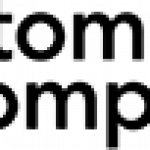Xanadu awarded National Research Council of Canada contract to develop novel detectors

(MorningStar) Xanadu has been selected as a successful candidate in Phase 1 of the Innovative Solutions Canada (ISC) “Photonic detection beyond single photons” challenge.
Sponsored by the National Research Council of Canada (NRC), this ISC challenge is seeking a solution that will enable NRC researchers to detect and distinguish photon number up to 5-10 photons at various wavelengths including 800nm and 1550nm for development of photonic quantum technologies. The photon number resolving detection technology targets operation above 200kHz rate with software and hardware integration to allow for automatic calibration and data collection. The contract enables Xanadu to adapt its existing transition-edge sensor (TES) based photon-number-resolving (PNR) detection technology, which is capable of detecting multiple photons simultaneously, into a system that can be deployed and used by the NRC.
Photon detection technologies are a critical component in the development of many promising quantum technologies. However, today’s commercially available photon detectors are either limited to single-photon detection, or they are not scalable as they require manual tuning and calibration by highly-trained specialists for operation. The ability to generate and characterize multi-photon pulses using PNR detectors will enable scientists at NRC to pursue new approaches to quantum sensing, communication, and computing.
The TES sensors at the heart of this technology were originally developed by the team in the Faint Photonics Group, led by Dr. Sae Woo Nam, at the U.S. National Institute of Standards and Technology (NIST). Xanadu is engaged in a multi-year collaboration with NIST to improve and commercialize the TES technology.
“Working with NIST, we have been developing these PNR detectors for our own use at Xanadu, as they form a core part of our photonic quantum computers. Now, this ISC challenge will help us to take the extra steps needed to develop the technology and turn it into a turn-key system that meets all the needs of leading scientists like those of the NRC,” said Matt Collins, Low Temperature Team Lead at Xanadu.
Throughout this challenge, the NRC is seeking demonstration of PNR detection technology that is a fully integrated system with superior detection capacity. This will allow NRC scientists to fully exploit the potential of PNR detection in a variety of quantum technology applications.



















